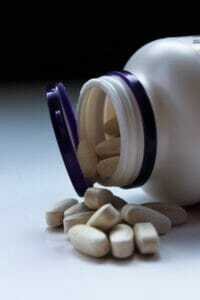The Miami Herald recently reported a story about several students falling ill after taking prescription drugs at a Florida Keys school. The  medication was actually prescribed to one of the students, which serves as a good reminder for parents to take extra caution with medication safety around their children, even if the medication has been prescribed to them.
medication was actually prescribed to one of the students, which serves as a good reminder for parents to take extra caution with medication safety around their children, even if the medication has been prescribed to them.
Any parent knows that kids can get into almost anything and this includes medication. Many medications even look or taste like candy so it can be confusing to smaller children why they can have candy but not have the pills that may look the same. According to Safe Kids Worldwide, medications are the leading cause of child poisoning, and in 2013 alone, 59,000 kids were taken to the emergency room for poisoning from medication. These emergencies are largely preventable if parents are aware of the dangers of medications and are educating their children regularly.
Practicing Medication Safety
It’s important that parents remember that even if a drug is prescribed to your child, there is still a danger associated with it. Parents should take the time to talk to their child about the risks in taking too much of the medication and sharing it with others who may not need it. Though 24/7 monitoring may not be realistic with older children, it’s important that parents pay attention to dosages and the amount of medication in the bottle at all times.
If other members of the household have drug prescriptions, it’s important that they are hidden and out-of-reach from any children. Parents should pay attention to medication if it is in easily accessible areas such as purses or nightstands as well as ensure that all prescriptions and potentially harmful substances are properly stored. At no time should young children know where potentially harmful medication is located.
Always check with a doctor before giving your children any type of medication, even if it is over-the-counter. These medications may not always be necessary and a doctor or pharmacist can advise you on dosing. When consulting with a physician or pharmacist ensure that they have the correct health information for your child, as allergies and a child’s weight and size can impact the type or amount of medication that is safe to ingest. Once the medication is prescribed, always use the proper dosing mechanism and don’t improvise.
Never, under any circumstance, give a child medication that is meant for an adult, and always read all the instructions and follow them exactly. In the event that you feel like your child could be at risk for poisoning call emergency services or the poison hotline: 1-800-222-1222.
We care about the families in our community and want our children to be safe from harmful products. If you feel as though your child has suffered injury or illness due to the negligence of someone else, you can contact us for a consultation on your case. We can be reached at 305-662-6178.
References:
Goodhue, D. (2019, February 27). Emergency at Florida Keys school after kids ingest drugs. Retrieved from https://miamiherald.com/news/local/community/florida-keys/article226862634.html
Medication Safety. (n.d.). Retrieved from https://safekids.org/medicinesafety
Hilmas, E. (Ed.). (2018, November). Medicines: Using Them Safely (for Parents). Retrieved from https://kidshealth.org/en/parents/medication-safety.html


